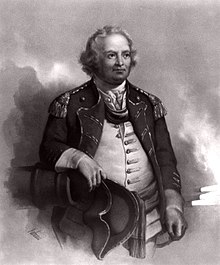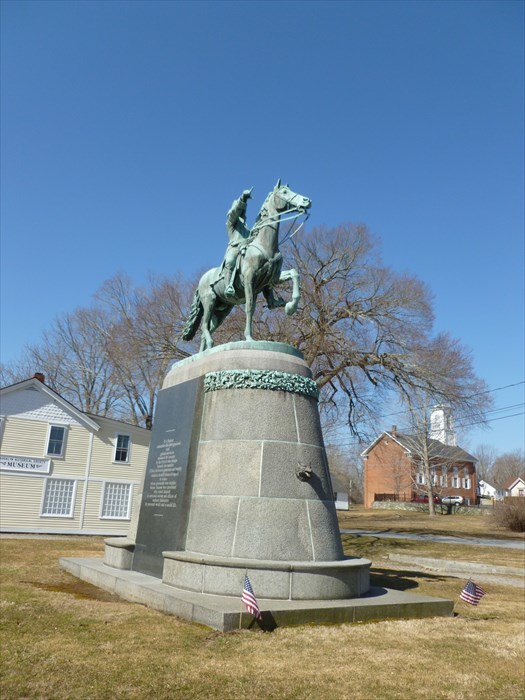
General Israel Putnam
Brooklyn, CT
N 41° 47.186 W 071° 56.982


The sculpture rests on an oval base which has a garland of oak leaves encircling it near the top. A wolf head sticks out from the front of the base. This is a reference the the legend that as a young man Israel Putnam killed the last wolf in Connecticut. The symbol became the identified with the Putnam family. On the north and south sides of the base are large polished granite plaques.
The plaque on the north side of the monument is inscribed:
Sacred be this Monument
to the memory of
ISRAEL PUTNAM, Esq.
Senior Major General in the Armies
of the United States of America,
who was born in Salem,
in the Province of Massachusetts
on the 7th day of January,
A.S. 1718
and died on the 29th of May
A.D. 1790
Passenger,
if thou art a soldier,
drop a tear over the dust of a Hero,
who ever attentive
to the lives and happiness of his men
dared to lead
where any dared to follow.

The plaque on the south side of the monument is inscribed:
If a Patriot,
remember the distinguished
and
gallant services
rendered thy country
by the Patriot who sleeps
beneath this marble;
if thou art honest, generous and worthy,
render a cheerful tribute of respect
to a man
whose generosity was singular,
whose honesty was proverbial;
who raised himself
to universal esteem and offices of
eminent distinction
by personal worth and a useful life.

During the French and Indian War, Putnam was a member of Rogers' Rangers. He was became a captain in 1756 and a major in 1758. At the outbreak of the Revolutionary War, legend says he left his plow in the field and road on horseback 100 miles in eight hours to reach Cambridge, MA. Putnam was made a major general and second in rank to General Artemas Ward in the Army of Observation, the forerunner of the Continental Army.
Putnam was a major planner and participant in the the Battle of Bunker Hill. He is often credited with issuing the battle cry - "Don't fire until you see the whites of their eyes.". Subsequently he fought in the Battle of Long Island and later assumed command of the troops in the Hudson Highland. He suffered a stroke in 1779 which ended his military career.
Israel Putnam died in Brooklyn, CT on May 29, 1790. He is buried a sarcophagus built into the foundation of this monument near the Brooklyn town green.
No comments:
Post a Comment